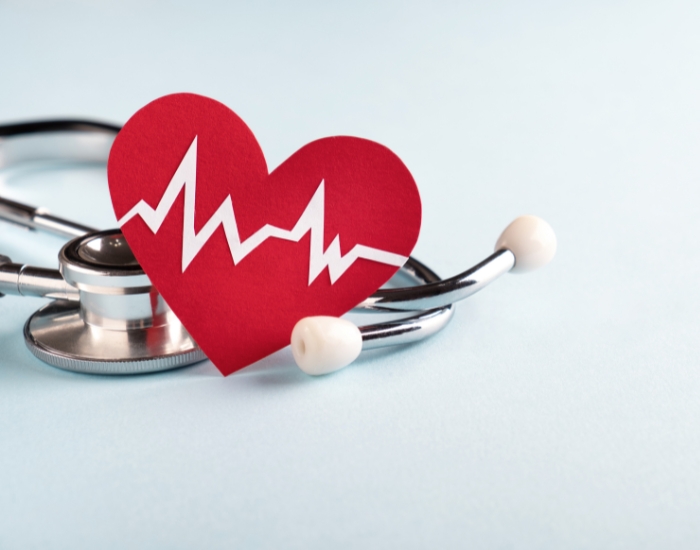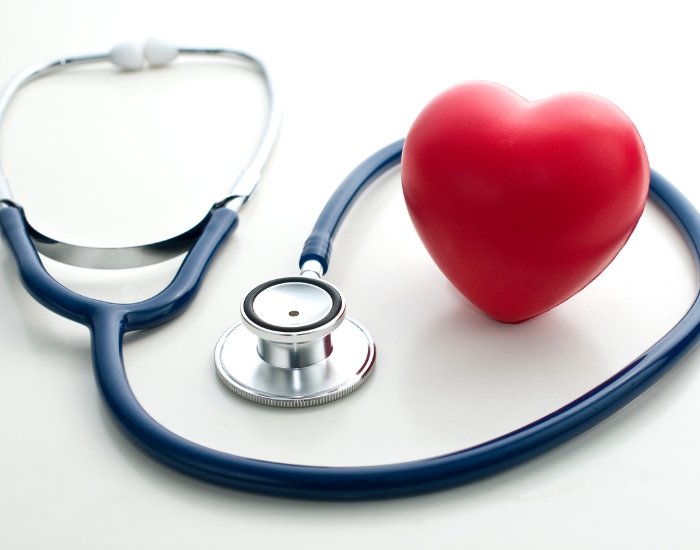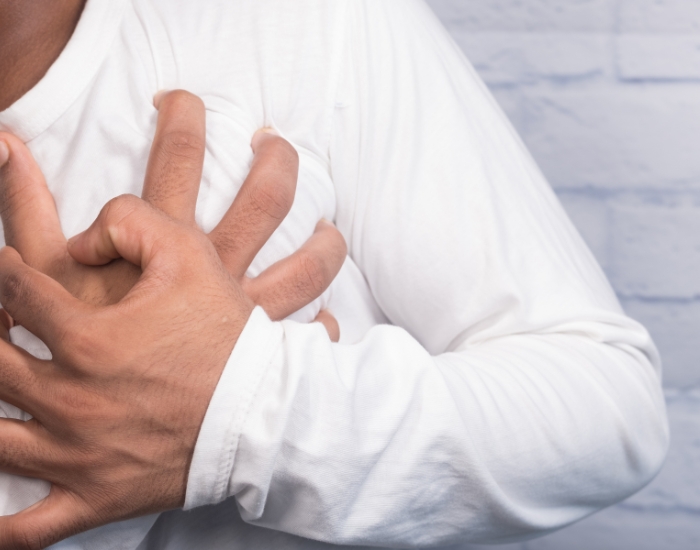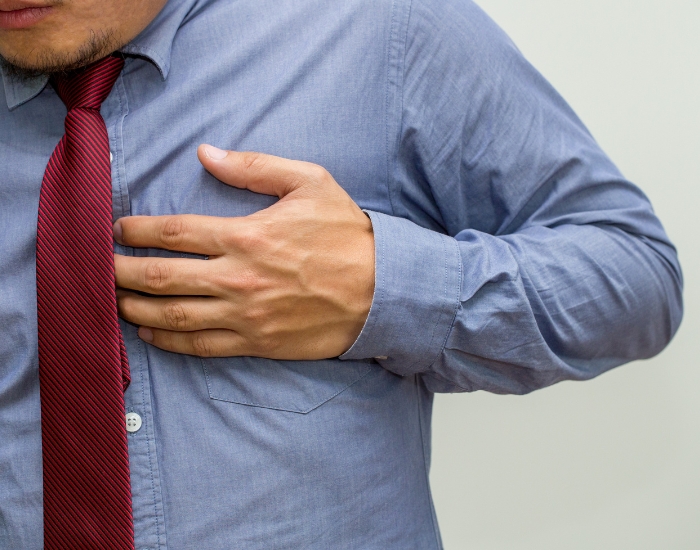Experiencing chest pain when breathing can be unsettling and even frightening. Whether the pain feels sharp, stabbing, dull, or pressure-like, it’s a symptom you should never ignore. While it may sometimes be caused by something minor, like a muscle strain, it can also signal a serious underlying condition involving the heart, lungs, or other vital systems.
Chest pain that worsens when you take a deep breath often indicates that something is affecting the structures in or around your chest cavity. Because your heart and lungs play such a crucial role in your overall health, it’s essential to identify the cause early and get appropriate treatment before the problem becomes severe.
Understanding Chest Pain When Breathing
When you take a deep breath, your chest expands, and the muscles, lungs, and surrounding tissue all move. Pain during this motion may happen for several reasons, including:
-
Inflammation or irritation of the heart or lung linings
-
Blockages in blood vessels
-
Injury to the chest muscles or ribs
-
Problems with circulation or oxygen flow
-
Anxiety or panic attacks that affect breathing patterns
The exact type and location of the pain can sometimes give clues. For example, sharp pain that worsens when lying down may point to an issue like pericarditis, while sudden stabbing pain with shortness of breath could be related to a blood clot in the lungs.
Because symptoms vary so widely, the only way to know for sure what’s happening is through a thorough medical evaluation.
Common Causes of Chest Pain While Breathing
There are many possible causes of this symptom. Some are mild and temporary, while others are serious and potentially life-threatening. Below are some of the most common reasons people experience chest pain with breathing.
Heart-Related Causes
Problems with the heart are among the most serious causes. These may include:
-
Angina: Reduced blood flow to the heart, often felt as tightness or pressure during physical activity.
-
Heart Attack: A blockage of blood flow to the heart muscle, leading to intense pain, sweating, and shortness of breath.
-
Pericarditis: Inflammation of the sac surrounding the heart, causing sharp pain that worsens when lying flat.
-
Aortic Dissection: A tear in the wall of the aorta, often causing sudden, severe pain that radiates to the back.
Lung and Respiratory Causes
Your lungs play a key role in breathing, and problems here often lead to pain when you inhale or exhale deeply.
-
Pulmonary Embolism: A blood clot in the lungs causing sudden sharp pain and rapid heartbeat.
-
Pneumonia: Infection that inflames lung tissue and causes pain, fever, and cough.
-
Pleurisy: Irritation of the lining of the lungs leading to sharp, localized pain.
-
Collapsed Lung (Pneumothorax): Sudden onset of pain and breathing difficulty due to air escaping from the lung.
Digestive System Issues
Sometimes, discomfort in the chest actually comes from the digestive tract.
-
Acid Reflux (GERD): Stomach acid flows back into the esophagus, causing burning pain that may worsen when lying down.
-
Gallbladder Problems: Pain from gallstones can radiate to the chest or shoulder, especially after eating fatty foods.
Musculoskeletal Causes
The muscles, bones, and cartilage in your chest wall can also be the source of pain.
-
Costochondritis: Inflammation of the cartilage connecting ribs to the breastbone, often tender to the touch.
-
Muscle Strain: Overexertion or injury to chest muscles, especially after heavy lifting or intense exercise.
Anxiety and Stress
Emotional factors can trigger real, physical symptoms.
During an anxiety or panic attack, you might feel:
-
A racing heartbeat
-
Sudden chest tightness
-
Sweating or shaking
-
Difficulty breathing
While these episodes are not caused by heart disease, they can feel similar and should be evaluated to rule out other conditions.
When to Seek Immediate Medical Attention
While some causes of chest pain are minor, others are emergencies.
Seek urgent care or call 911 right away if you experience:
-
Severe or crushing chest pressure
-
Pain radiating to your arm, jaw, or back
-
Sudden, unexplained shortness of breath
-
Dizziness, nausea, or sweating
-
Fainting or near-fainting spells
-
Persistent pain that does not improve with rest
When in doubt, it’s always better to err on the side of caution and get evaluated immediately.
How Chest Pain Is Diagnosed
At a medical office like Advanced Cardiology, the doctor will take a thorough history and perform an exam to understand your symptoms.
They may also use diagnostic tools such as:
-
Electrocardiogram (EKG): Checks heart rhythm and detects heart attacks.
-
Echocardiogram: Ultrasound imaging to see the heart’s structure and motion.
-
Stress Test: Measures heart function during activity.
-
Blood Work: Detects signs of heart damage, infection, or clotting disorders.
-
Imaging Studies: Chest X-ray, CT scan, or MRI to examine the lungs and other structures.
The goal is to determine the exact cause quickly so treatment can begin without delay.
Treatment Options
The right treatment depends entirely on the underlying cause.
Some of the most common approaches include:
-
Medications: To treat infection, reduce inflammation, or improve blood flow.
-
Lifestyle Changes: Adjusting diet, exercise, and stress levels to improve heart and lung health.
-
Minimally Invasive Procedures: Such as stents or angioplasty to restore blood flow in blocked arteries.
-
Specialist Referrals: To pulmonary or gastrointestinal specialists when needed.
-
Emergency Interventions: Immediate care for heart attacks, blood clots, or collapsed lungs.
Preventing Future Chest Discomfort
While not all cases can be prevented, there are steps you can take to reduce your risk of heart and lung problems:
-
Maintain a healthy weight and blood pressure
-
Eat a heart-healthy diet rich in fruits, vegetables, and lean proteins
-
Avoid smoking and limit alcohol intake
-
Exercise regularly with your doctor’s guidance
-
Manage stress through deep breathing, yoga, or counseling
-
Keep up with regular checkups, especially if you have a family history of heart disease
The Bottom Line
Chest pain when breathing should never be ignored. While it can sometimes be caused by something simple like a strained muscle, it can also be a sign of life-threatening conditions that need immediate attention.
If you are experiencing chest pain or any troubling heart symptoms, schedule an evaluation as soon as possible.
Getting the right diagnosis and treatment early can protect your health and give you peace of mind.
Advanced Cardiology – Your Partner in Heart Health
At Advanced Cardiology, we are dedicated to providing comprehensive heart care to patients in Sugar Land, Katy, Richmond, Rosenberg, and Greater Houston.
Led by Dr. Adnan Khalid, a board-certified interventional cardiologist with expertise in heart failure, transplant cardiology, and cardiovascular disease, our team offers:
-
State-of-the-art diagnostic testing
-
Minimally invasive treatments
-
Personalized, compassionate care
If you’re experiencing chest pain when breathing, don’t wait.
📞 Call (713) 258-6111 or Request an Appointment Online to get expert care close to home.
Your heart deserves the best — trust Advanced Cardiology to guide you every step of the way.






